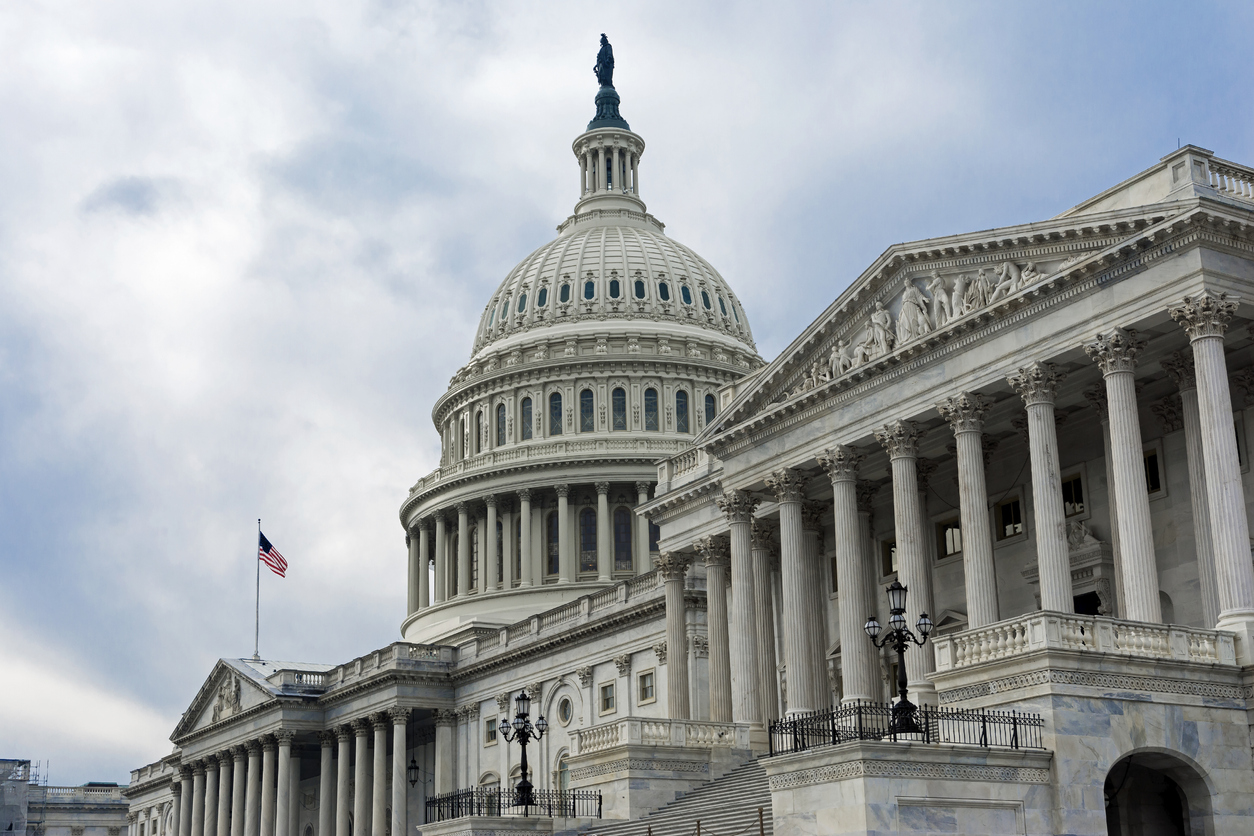Divided Congress Limits Legislative Possibilities, Shifts Focus to Financial Regulators
Trade is among the areas for bipartisanship in a divided Congress, while regulatory activity ramps up and the debt ceiling looms

With Congress largely hamstrung by divided control in 2023, pro-business groups are closely watching legislative areas with potential for bipartisan consensus, signs of the parties’ positions for the future, and regulatory activity—perhaps the likeliest source of change in Washington, D.C., this year.
The U.S. midterms resulted in a narrow majority for Republicans in the House, while Democrats eked out a slim majority in the Senate. The divided control and thin margins will likely preclude large bills with tax and regulatory provisions like 2022’s Inflation Reduction Act, which Democrats passed with a simple majority through a process known as reconciliation. With today’s numbers, such a maneuver is off the table.
“We’re not going to see big sweeping pieces of legislation like we’ve seen over the last couple years, when it was single-party control under the Democrats,” says Jim Brandell, a government policy advisor at law firm Dykema. “The midterms have had a huge impact on the types of legislation that we’ll see.”
Common Ground on Trade
The midterms have had a huge impact on the types of legislation that we’ll see.
Jim Brandell
Dykema
Yet the parties might be able to find areas with common ground to legislate. Brandell points to two trade-related programs that expired in the last few years whose renewal would benefit the business community and that appear to have bipartisan support: the Miscellaneous Tariff Bill, which temporarily reduces or suspends the tariffs paid on certain products imported into the U.S., and the Generalized System of Preferences, which eliminates duties on thousands of products when imported from a designated beneficiary country or territory.
Related content: 3 Ways to Insulate SMB Finances Against Supply Chain Disruptions
According to Brandell, other topics of bipartisan discussion that U.S. business leaders are watching include restarting the trade agreement with the United Kingdom, which was initiated by President Donald Trump and paused under the Biden administration; and rejoining the Trans-Pacific Partnership, the trade pact with Pacific Rim nations and the U.S. that President Trump withdrew from on his first day in office.
“I definitely think trade is an area that can transcend politics and possibly get some positive things done for business in the next two years,” Brandell says.
Drew Maloney, president and CEO of the American Investment Council, which advocates on behalf of private equity, notes that even bills that are doomed to die on the House floor are worth watching. Republican-sponsored bills in support of capital formation, for example, are unlikely to become law this year but telegraph the party’s priorities for the future. “That may not pass the Senate, but it’s a messaging vehicle for maybe three years, four years down the road,” Maloney says.
Likewise, Brandell anticipates members of Congress will bring forth bills that lay out their positions on tax policy before parts of the 2017 Tax Cuts and Jobs Act begin to expire in 2025. Despite the unlikelihood of passing major tax-related legislation, lawmakers will use the opportunity to articulate proposals that could resurface in a later Congress. “Once a tax idea is out there, even if it doesn’t pass, it’s on the shelf for later consideration,” Brandell says.
Passing the Buck to Regulators
With the 113th Congress embroiled in partisan gridlock, meaningful change in the financial services realm looks likely to come from regulators.
Now that Republicans control the House, Maloney expects that chamber to step up oversight of federal agencies like the Securities and Exchange Commission, Federal Trade Commission and Commodity Futures Trading Commission. At the same time, those agencies are likely to try to finalize proposed rules while President Biden is still in office. “In the last two years of an administration, the regulatory bodies will try to get as much accomplished as they can,” Maloney says.
The SEC is expected to step up its enforcement activity generally. Meanwhile, the agency has introduced various rules that would impact private equity firms’ marketing and advertising activities; electronic communication; and outsourcing, among others. Proposed rules from the SEC would “have a real impact on our industry” if passed, Maloney notes.
Related content: 3 Areas of Private Equity the SEC Is Watching in 2023
Other federal bodies are also expected to publish new rules with corporate tax implications. Brandell points to the Treasury Department, which is expected to announce rules stemming from the Inflation Reduction Act, including those related to the use of clean energy tax credits.
The Treasury Department will have another critical role in the coming months as it takes so-called “extraordinary measures” to ensure the U.S. government continues to pay its bills after the nation hit its debt ceiling on Jan. 19. Treasury Secretary Janet Yellen stated the department’s accounting maneuvers will help the country’s finances stay afloat through June 5, according to reporting by CNN, as she urged Congress to “act promptly” to raise the debt limit to avoid default.
Congressional action to raise the country’s borrowing threshold would prevent a severe shock to financial markets and higher borrowing costs for businesses that would stem from a U.S. default. Still, Brandell notes that congressional action to raise the nation’s debt ceiling isn’t certain.
“Hopefully that’ll go without incident, but usually there’s some drama that transpires around raising the debt ceiling,” he says. “And we’ll see if that happens in 2023.”
Katie Mulligan is ACG’s content director, based in Chicago.


